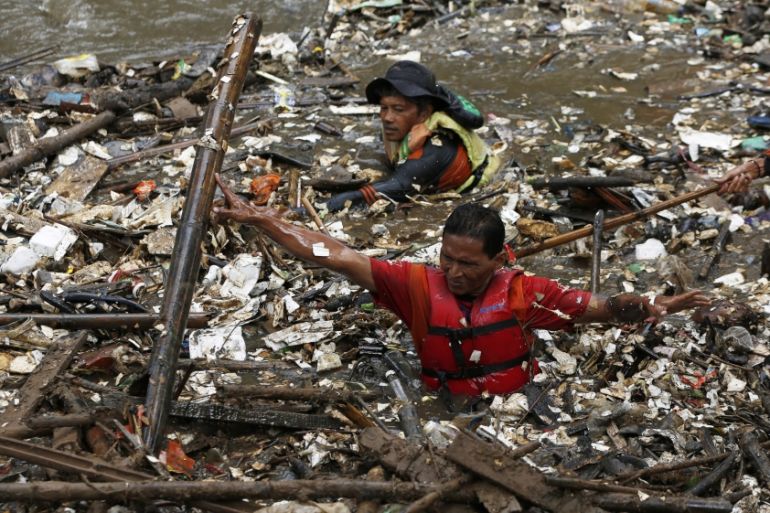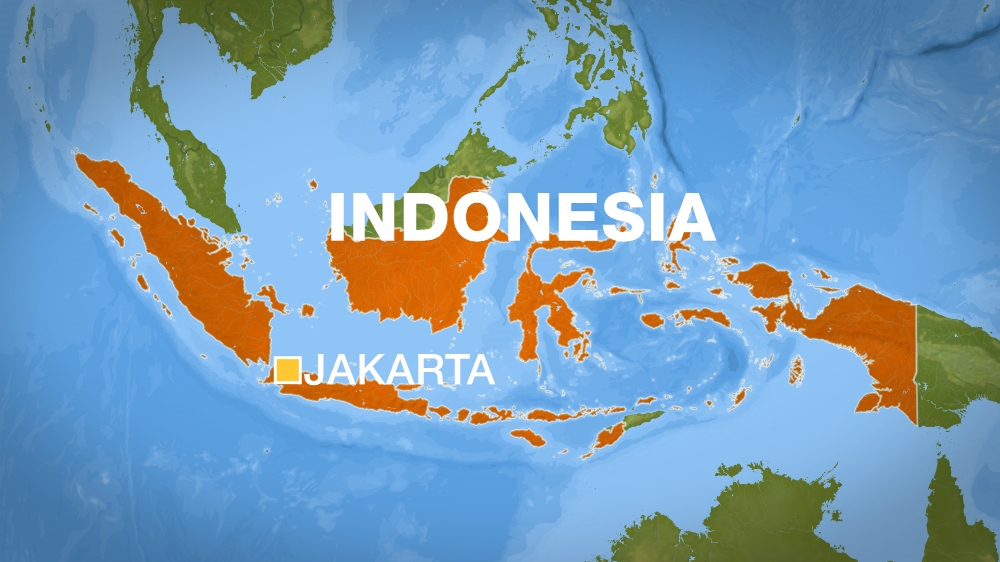Indonesia: Plastic tax to curb rubbish dumped in rivers
Move aims to cut 187 million tonnes of carrier bags dumped into the country’s waters, clogging up drainage channels.

Jakarta – The Indonesian government has decided to impose a national tax on plastic carrier bags in the hope of reducing waste in the country’s heavily polluted waters.
About 187 million tonnes of plastic waste is dumped into the country’s waters, placing Indonesia – with a geographically scattered population of 250 million people – second to China.
Keep reading
list of 4 itemsAre seed-sowing drones the answer to global deforestation?
Rainfall set to help crews battling wildfire near Canada’s Fort McMurray
The Alabama town living and dying in the shadow of chemical plants
Posing a significant threat to wildlife, both marine and terrestrial, plastics have clogged up important drainage channels in the Southeast Asian country, leading to severe flooding.
Bottles and food containers are among other plastics similarly posing a threat to marine and human life.
READ MORE: Pollution flows freely in Indonesia’s rivers
“If you could see below the surface, you would see a pile of rubbish of about two to three metres deep. I have to stop every few minutes to clean my boat engine from garbage” Guntur, a fisherman in Jakarta, told Al Jazeera.
“It has been like this for years. It only makes sense that people call this area rubbish island, because that is the reality.”
The plan to reduce mounting levels of polyethylene waste was first introduced last February, when taxes were introduced across 23 Indonesian cities.
Jakarta, the country’s most populous city, was among the selected locations to gain a tax. It received a set rate of 200 rupiahs, or equivalently, 2 cents a bag. Other city administrations were free to charge more or less.

But there is an overarching concern that the government’s clean-up operation will be ineffective if people are not taught to reduce their plastic waste trail and to throw rubbish into designated areas.
“People are still not aware that they should not throw rubbish into these waters. That’s why we, from the cleaning brigade, always try to educate them and tell them that this is against the law” Sahbany, who works as coordinator for the Orange Brigade, told Al Jazeera.
Government leaders say they are determined to cut waste and increase public awareness.
By the end of the year, law enforcement is eager to expand this mandatory fee of 1.5 cents a bag nationwide as well as also levy produces.
READ MORE: Life in Indonesia’s sinking capital
But protests led by industry leaders against this bill are delaying its enforcement.
“A good road map and clear target is urgently needed. The president has announced that Indonesia should be free of waste by 2020. But without a clear programme and agenda on how to achieve this, I believe this plan will definitely fail,” Khalisah Khalid, of Friends of the Earth, told Al Jazeera.
Prolonging the initiative means that many fishermen will have to look for fishing grounds much further away from the island.
Environmental campaigners have welcomed the taxation, but complain that the levy is too low and that plastic bags are only one aspect of Indonesia’s waste management crisis.